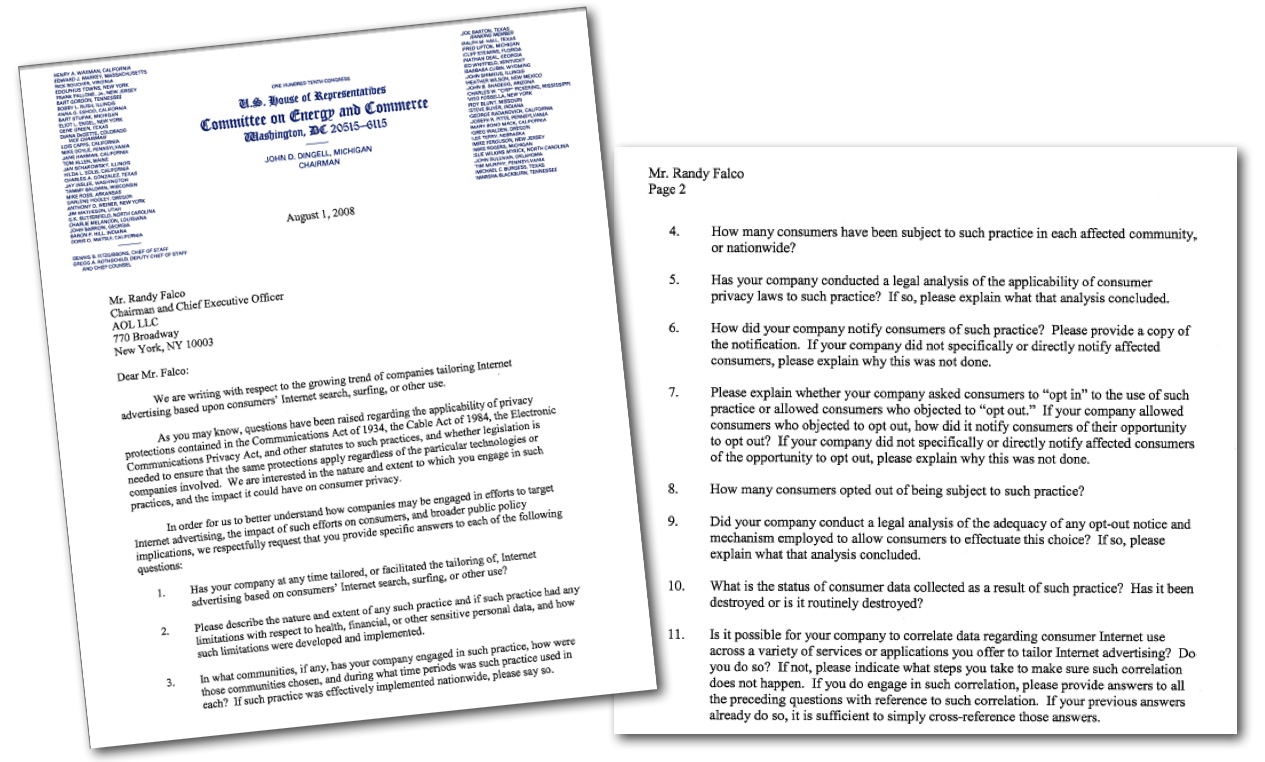Privacy bill looms as web firms acknowledge customer profiling
 In what could lead to an online privacy Bill of Rights, several Internet and broadband companies have acknowledged using targeted-advertising technology without explicitly informing customers.
In what could lead to an online privacy Bill of Rights, several Internet and broadband companies have acknowledged using targeted-advertising technology without explicitly informing customers.
The revelations came in response to a bipartisan inquiry by the House Energy and Commerce committee of how more than 30 net companies have gathered data to target customers through advertising. For many companies, customer data gathered by monitoring their online behaviors represents a key strategy for monetizing activities on the Internet. Many sites ask users to give them permission to use data collected on the site, and many users voluntarily provide some level of personal information.
Recently, however, sophisticated tracking and profiling software has been developed to gather personal data without the knowledge of users.
Google, the leading online advertising enterprise, acknowledged to the House committee that it has begun using tracking technology that enables it to more precisely follow Web-surfing behaviors across affiliated sites. Google said yesterday that it was not yet focusing on “behavioral” advertising, which depends on Web site tracking.
Virtually all of the 30 companies on the House list — “fast companies” such as AOL, Comcast, Yahoo!, and Microsoft — are exploring or have explored behavorial analysis as part of their online commerce strategies, and several acknowledged testing the practice. But following the Congressional inquiry, Yahoo! announced its users will be able to configure the site so it would not serve them customized ads targeted to their personal information and online behavior.
Privacy advocates and several lawmakers said yesterday’s disclosures help build a case for a landmark, online privacy law in the U.S. But other lawmakers believe such legislation could make it more difficult for small companies to compete on the web against the likes of Google.
“Increasingly, there are no limits technologically as to what a company can do in terms of collecting information,” committee member Edward J. Markey (D-Mass.) said in a statement. “Our responsibility is to make sure we create a law that, regardless of the technology, includes a set of legal guaranteees that consumers have with respect to their information.”
Markey said he and his colleagues plan to introduce legislation next year that would require that customers “opt in” to the tracking of their online behavior and and the sharing of their personal data.
Read the letter from the House Energy and Commerce Committee.
Read responses from 27 companies.




